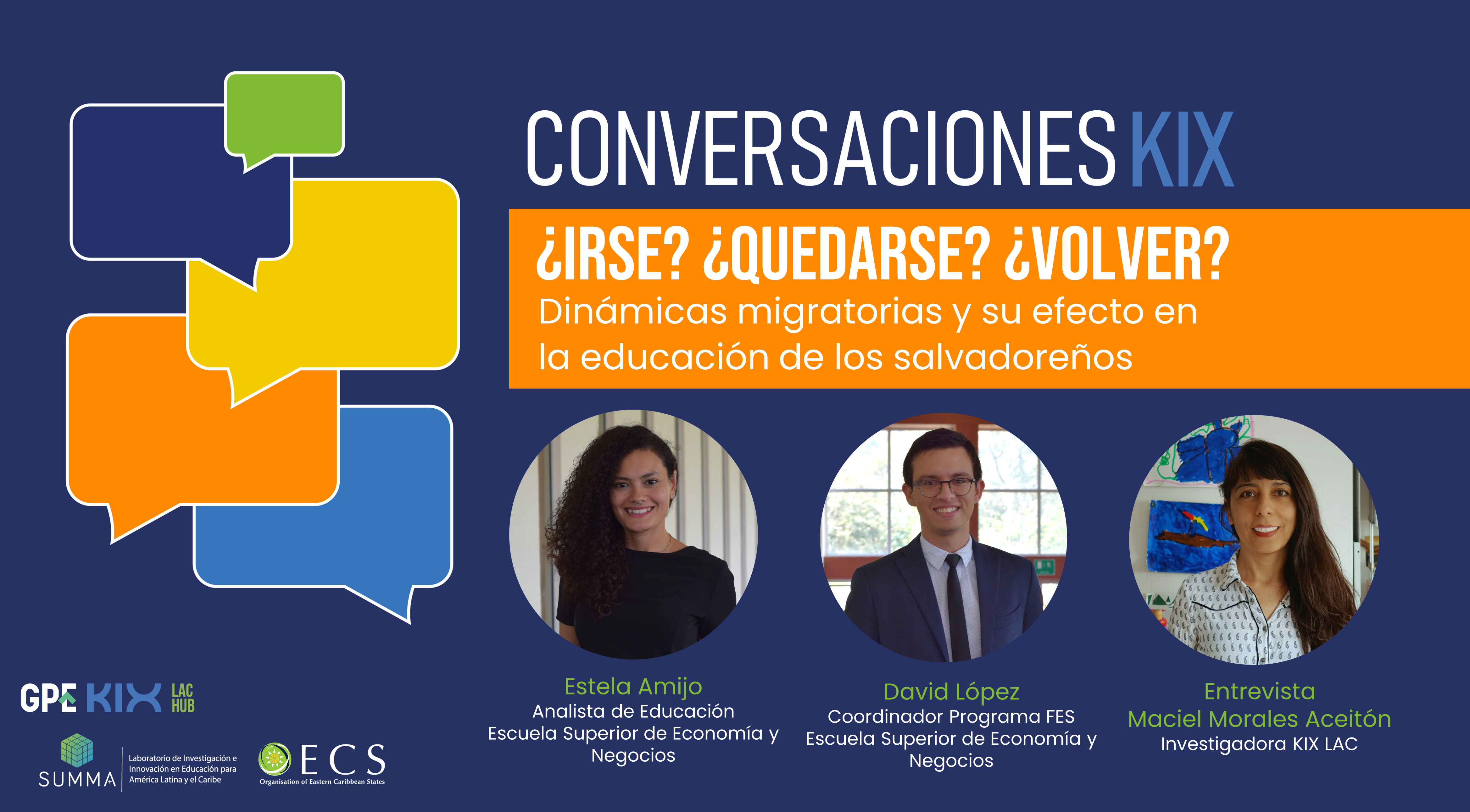
The 5th edition of the KIX Conversations by the KIX LAC hub took place on Oct. 20, 2021. It was attended by national representatives of El Salvador and authors of the research "Leaving? Staying? Returning? Migratory dynamics and their effect on the education of Salvadorans". Estela Armijo, Education Analyst, and David López, Coordinator of the Fundación para la Educación Superior (FES) Program of the Escuela Superior de Economía y Negocios were interviewed by a KIX LAC hub researcher, Maciel Morales Aceitón.
The most relevant data of the research show that since 2010 the number of Salvadoran immigrants increased from 17% to 44%, which currently represents almost 3 million people who are outside the territory, with 47% of men and 53% of women coming from 54% of the urban area and 46% from rural areas of the rest of the country. The vast majority of these immigrants do so before reaching 30 years of age.
The main reasons for the massive exodus are: 1) to look for a new job and improved working conditions; 2) to improve living conditions; and 3) for reasons of insecurity. For El Salvador, remittances from abroad, mainly from the United States, since 9 out of 10 migrants go to the United States, represent 20% of the GDP. This number has been growing in recent years and is the main source of income in the Salvadoran economy, but has undermined the country's main resource, which is its people, generating a "brain drain" of young and talented people in their most productive age, who could contribute to the growth and development of the country.
The researchers propose several aspects on which reflection should focus in the construction of educational public policies, such as the deconstruction of imaginaries within the classroom; incorporating the issue of migration as a current phenomenon; the demographic effects and the reason for the exodus of academics; educational certification and continuous training for returnees; ensuring the valuation of skills and learning acquired abroad; and the psychological and social consequences caused by the "vacuum" of migration, where the education system can provide psychosocial support and emotional strengthening tools as part of the curriculum for children and adolescents.
Watch the conversation here (only in Spanish with subtitles in English) : https://www.youtube.com/watch?v=kHOIC8qaSSQ
